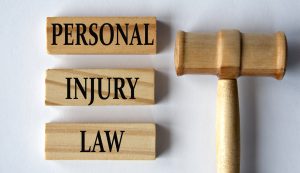Car accidents involving teen drivers are a significant concern. Tragically, in 2022 alone, over 2,514 people died in crashes involving teen drivers. With higher rates of incidents compared to older drivers, understanding the legal implications and adopting preventive measures is essential for ensuring the safety and well-being of young drivers.
Legal Implications of Teen Driver Accidents
Teens and their parents must understand who might be at fault, how it affects insurance, and what legal consequences could follow. Here are the main legal points to consider if a teen is in an accident:
Determining Liability
In most car accidents, liability is decided based on who was negligent, or careless, in causing the accident. For teen drivers, this could mean:
- Speeding
- Not paying attention
- Breaking traffic laws.
Insurance companies and the police will look at the details of the accident, such as witness statements, traffic camera footage, and the condition of the vehicles, to figure out who is at fault.
Insurance Requirements
Teen drivers are usually required to have auto insurance. This insurance helps cover costs if they are in an accident. However, being involved in an accident can cause their insurance rates to go up. Teens and their parents should be aware that:
- Minimum Coverage: Most states have laws requiring minimum insurance coverage for drivers. Teens need to meet these requirements.
- Premium Increases: If a teen driver is at fault in an accident, their insurance premiums, or monthly payments, will likely increase.
- Denial of Coverage: In some cases, insurance companies may deny coverage if the teen violated certain conditions of their policy.
Legal Penalties
Legal penalties can include fines, points on their driving record, or even having their license suspended. More severe violations, such as driving under the influence of alcohol or drugs (DUI/DWI), can lead to even harsher penalties:
- Fines: Monetary penalties that can be quite high.
- License Suspension: The teen's driving privileges may be taken away for a period of time.
- Community Service: They may be required to perform a certain number of hours of community service.
- Criminal Charges: In the case of DUI/DWI or accidents causing serious injury or death, criminal charges may be filed.
Preventive Measures for Teen Drivers
By taking proactive steps, teens can reduce their risk of being involved in car accidents. Here are some important preventive measures that can help ensure their safety:
Comprehensive Driver Education
Teen drivers should enrol in comprehensive driver education programs that cover all aspects of safe driving. These programs teach essential skills, such as:
- Understanding Traffic Laws: Knowing and obeying traffic laws helps prevent accidents.
- Defensive Driving Techniques: Learning how to anticipate and respond to potential hazards on the road.
Parental Guidance and Supervision
By being involved, parents can guide and supervise their teen drivers effectively. Key strategies include:
- Leading by Example: Demonstrate safe driving habits for your teen to follow.
- Setting Clear Rules: Establish rules for driving, such as curfews and limits on nighttime driving.
- Monitoring Driving Habits: Regularly check in on your teen's driving behaviour and provide constructive feedback.
Practicing Safe Driving Habits
Teen drivers should be encouraged to adopt and maintain safe driving habits. Some important practices include:
- Always wear a seatbelt and ensure all passengers do the same.
- Follow speed limits and adjust speed according to road conditions.
- Staying focused on the road and avoiding using mobile phones while driving.
Conclusion
By prioritizing safety and ongoing education, we can collectively reduce accidents involving young drivers and ensure a safer road environment for everyone.
Additionally, if you’re in Georgia, having the guidance of a Savannah car accident attorney can provide valuable support and simplify the legal process in case of an accident.





















